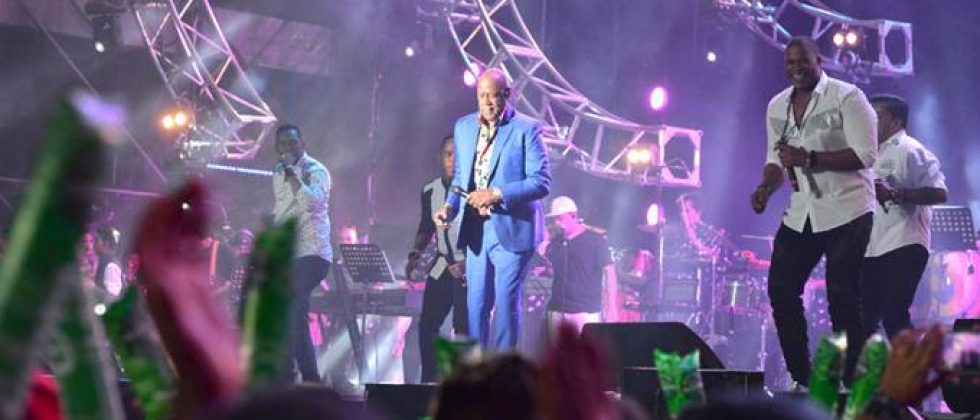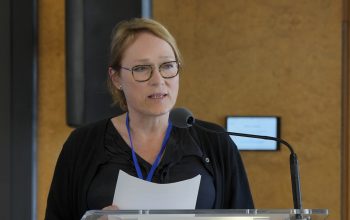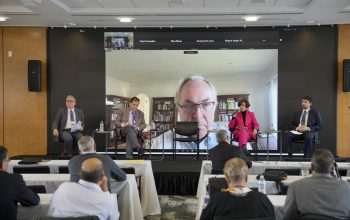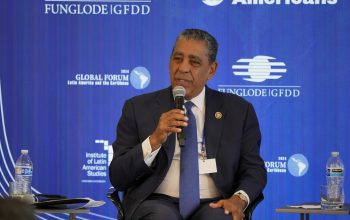news
“Johnny Ventura: In the Heart of the People”, an article by Dr. Leonel Fernández
August 3, 2021
As the first news about the death of Johnny Ventura spread like wildfire, we were reluctant to believe it. The day before, through a mutual friend – a Dominican pastor in the state of Pennsylvania – we spoke over the phone.
I hoped that it was a rumor that was going around, and that the news would all turn out to be false. However, it did not happen that way. It all turned out to be a devastating reality; and it was then that we joined the consternation and affliction that at the moment impacted Dominican society in general due to the harsh reality faced. The event was not only fateful, but unexpected.
Johnny Ventura was an exceptional being. Coming from a humble family, with modest resources, he carved out his destiny based on his natural talents, his immense desire for personal improvement and his dedication to education.
His dream was to be an architect. To make this possible, he took courses in areas where it would be easier for him to find a job. At the time, in order to land a quick job young men and women took courses in typing, shorthand, accounting and filing systems.
Despite his efforts, he was unable to reach his goal. Instead, already a prominent figure in art and politics, he managed to obtain a law degree and graduated Summa Cum Laude.
For six decades he was a permanent source of joy for Dominicans. His musical innovations and dance techniques transformed the Merengue into an international passion. All knew him as the Major Stallion and the King of Modern Merengue. At the time of his death, several prestigious international media outlets, such as The New York Times, called him the “Elvis Presley of Merengue.” He borrowed from rock and roll, while maintaining tropical rhythms and speeding up the popularity of Creole music. The French newspaper, Le Monde, considered him a “Merengue icon.” CNN International praised him when it stated that he was “one of the most beloved artists in the Dominican Republic and Latin America.”
Rolling Stone magazine stated that “Johnny Ventura, through his Combo Show, launched his quality star in full swing earning him the reputation of a pioneer (trailblazer), by adding rock and roll elements to the Merengue.”
Other media outlets such as The Washington Post; El País, from Spain; the BBC, London and the US radio network NPR (National Public Radio), also published articles regarding the Major Stallion, as he was known by all throughout his career.
As if that were not enough, even in the subway stations of Berlin, the capital of Germany, the news spread regarding his death and the great artistic legacy left behind by this Dominican master.
National Identity
In the midst of an increasingly globalized world, each nation tries to establish its singularity, its unique character, its own identity. And all this takes place in the whirlwind of the international concert of nations.
And the Dominican Republic does the same. When we hear our national anthem, we vibrate with excitement. The same thing occurs when we see our tricolor flag waving in the air.
We flaunt our gastronomy. We express our nationalism by expressing our preference for the mashed green banana dish we call mangú, served with fried cheese or a Dominican-style pepperoni. There is also our favoritism when it comes to Dominican sausage or pork rinds.
In short, we promote our painters, sculptors, poets, storytellers, novelists and filmmakers. But also, our musicians, singers and dancers.
Through all these cultural expressions, some of which contribute to shape our national identity – the one that distinguishes us from the others – a feeling of pride arises regarding who we really are.
In the quest for cultivating this feeling of national pride Johnny Ventura, who was born 81 years ago as Juan de Dios Ventura Soriano, contributed to our national identity with his contagious music, his particular dance style, seductive smile and captivating charisma.
Apart from his particular rhythm, Johnny’s Merengue represents in the world of music, three decisive moments phases of a traditional society to a modern one; and third, the transition from a dictatorial political regime to a plural and open democracy.
With regard to the first, it is remarkable how throughout his career Maestro Ventura began to introduce local characters and events in his songs from every day to his artistic creation.
For instance, in the Merengue El Cuabero, he sings:
“Ramona thought she was going to buy wood resin, but a stick came out, and she didn´t want to get burned.
Virginia’s little daughter, since she didn´t know, also bought a stick, but she also didn’t want to get burned.”
In another song, he states:
“Although my first name is Alberto de Jesús, they call me by my nickname, so everyone calls me Chú, and [everywhere] I hear Chú here…Chú there. When I go upstairs. When I go downstairs …”.
There´s a particular song that the Major Stallion seems to have dedicated to his wife, Ms. Josefina. The autobiographical song says:
“Josefa’s husband only eats fish. If they give him something else, he openly rejects it. I don’t want tripe or roasted banana. I want them to give me my stewed fish.”
The musical pieces that best represent the transition from a traditional to a modern society are, among others, El Manicero, (The Peanut Vendor) El Cachimbo (The Peasant Tobacco), Filete (The Steak)and El Vendutero (The Street Vendor).
The latter is particularly revealing because it highlights an era that, at least in urban settings, has disappeared.
The song states:
“Vendutero from my country, you deserve a song.
You are part of my town, of my streets, of my heart
You sell bananas and oranges, green lemons, yucca or corn
Pigeon peas, flowers, pineapples, melons, hearts of palm, squash and sesame seeds.
The third phase of this radical change in his Merengue sound, where the artist makes truly transcendental contributions, refers to the fall of the dictatorship of Rafael Leonidas Trujillo and the advent of democracy.
During the dictatorship many composers and singers were compelled to sing praises to the tyrant. The Merengue thus served as a political instrument to legitimize the dictatorship.
With the collapse of the regime, even the Merengue was impacted by the democratic movement. As a child, I remember the song that launched that new era:
“The people celebrate with great enthusiasm.
The death of the goat, on the road.
Let me see it, let me see it.
They killed the goat and they did not let me see it.”
From there on, the Merengue exploded. Ever since then, the Merengue has become part of the country´s democratic political tradition and, naturally, in that sense, Johnny Ventura´s name occupies a very special place in our history.
The third phase of this struggle regarding the national political scene, there are two songs that are memorable: “There Come the Indians,” which warned of police repression against student protests. And the other, of course, “The Tobacco is Very Strong.”
The role of the Major Stallion was key in each of the stages experienced by the evolution of our Merengue. Without his contributions it would have been inconceivable for UNESCO to declare the Merengue an intangible cultural heritage of humanity.
But neither was he insensitive or indifferent to the concrete political struggles that were being waged permanently in Dominican society. He was a major political player, and became Mayor of Santo Domingo´s National District and a member of Congress.
Undoubtedly, he will always be remembered for his uncompromising struggles to defend our democracy and Constitution.
His efforts have been recognized by the people who last Sunday gave him an amazing, massive and unforgettable farewell.
With his death, Johnny Ventura was forever consecrated as a symbol of Dominican national identity.






